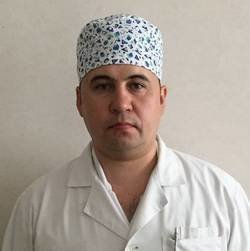What consequences of Tatarstan residents’ self-medication for COVID-19 surgeons remedy
The problem is topical during the flu season too: Otolaryngology Unit of Republican Clinical Hospital does hundreds of surgeries for self-medicated patients a year
The number of victims of self-medication when coronavirus and viral respiratory infections are wreaking havoc on Tatarstan is growing. It is hard to make an appointment for a doctor at the height of the epidemic, and in this case, many resort to looking for treatment on the Internet. By self-prescribing medicines, few think about side effects of treatment without a doctor’s consultation and consequences of an uncontrolled intake of medicines. Even an immoderate intake of a simple medicine for the runny nose can bring a patient to a hospital bed, health workers warn. While some Tatarstan residents made sure of this first-hand. Otolaryngologists and surgeons of Republican Clinical Hospital are raising the alarm — the number of such patients with serious complications after self-medication has recently been increasing. Read more in Realnoe Vremya’s report.
How “self-made doctor” gets to hospital
Everything began with a banal runny nose, remembers one of the patients of RCH surgeons asking not to make her name public. The woman told Realnoe Vremya’s correspondent how she herself bought the first nasal drops she saw. The medicine seemed to help, and the patient began to use them more and more often feeling constant congestion of the nose, it was already hard to breathe without this drug. So the patient ended up in RCH’s Otolaryngology Unit with serious health problems.
“I couldn’t live without the drops later on, I woke up several times even at night to apply the medicine. This lasted for several months until severe complications began. I had to see a doctor, here is the result of my self-medication — a surgery, I had polyps in nasal passages removed. My roommates are also ‘self-made doctors’ who treated their nose,” the woman sighs.
The life of those hooked on vasoconstricting drops looks like drug addicts’ life, doctors explain, a new dose is constantly needed, they can’t live without it. The persistent runny nose and constant necessity of repeatedly using the drops is the main symptom, as the organisms’ reactions reduce because medicines are used often — the nose can’t breathe without them because the tissue in the passages inflames, in addition, because of a reduction in pneumatisation and a shortage of oxygen, one has a headache that resembles migraine with time.
What’s the danger of the addiction?
Victims of self-medication assume that the more and longer they use nasal drops the faster they will cope with rhinitis. As a consequence, such a method of treatment leads to serious upshots, though hospitalisation with a serious complication. RCH’s Otolaryngology Unit alone annually does around 250 surgeries on such patients, plus, there are tens of surgeries in other urban hospitals and private clinics of Kazan, head of Otolaryngology Unit of Republican Clinical Hospital Marat Gilyalov provides statistical data. We should add hundreds of patients who receive conservative treatment in polyclinics to this quantity.
The fact that many don’t turn to doctors but keep being hooked on nasal medicines is also concerning, the otolaryngologist complains:

Statistically, around 600 million packs of different nasal vasoconstrictors are sold a year around the world. In Russia, the number is 200 million packs. These medicines are sold over the counter. Without doubt, not all people who use nasal drops abuse them. Gilyalov says that addiction usually develops if a person can’t do without nasal drops for a month or more. By the way, uncontrolled use of vasoconstrictors can lead not only to hospitalisation — naphazoline intoxication may result in coma and even death.
Despite technological progress, breakthroughs in some areas of medicine, humankind hasn’t yet invented a medicine for runny nose. While the mechanism of action of all vasoconstrictors boils down to the elimination of inflammation of the nasal lining and normalisation of nasal breathing. So nasal drops don’t treat the runny nose and eliminate its cause — they just relieve unpleasant symptoms.
Disease is easier to prevent
In the case of a runny and congested nose, Marat Gilyalov recommends using sprays or drops but for no more than 3-5 days, then it will be possible to avoid complications like sinusitis and other diseases. If rhinitis persists for more than a week, first of all, turn to a specialist or your GP who can determine if there is a complication with the help of tests and angiography and change treatment tactics.
Today when the number of viral respiratory infections is growing due to the high season, which is accompanied by the worsening of the epidemiological situation because of COVID-19, doctors urge people not to visit mass events, wash their hands more often, don’t touch their face, cleanse their nose with salt solutions that wash away viruses and bacteria by humidifying the lining.
“Our daily rhythm of life — a good sleep and nutrition, drinking plenty of water — is the biggest immune stimulator, then our organism will cope with all viruses and bacteria on its own,” the doctor assures us.